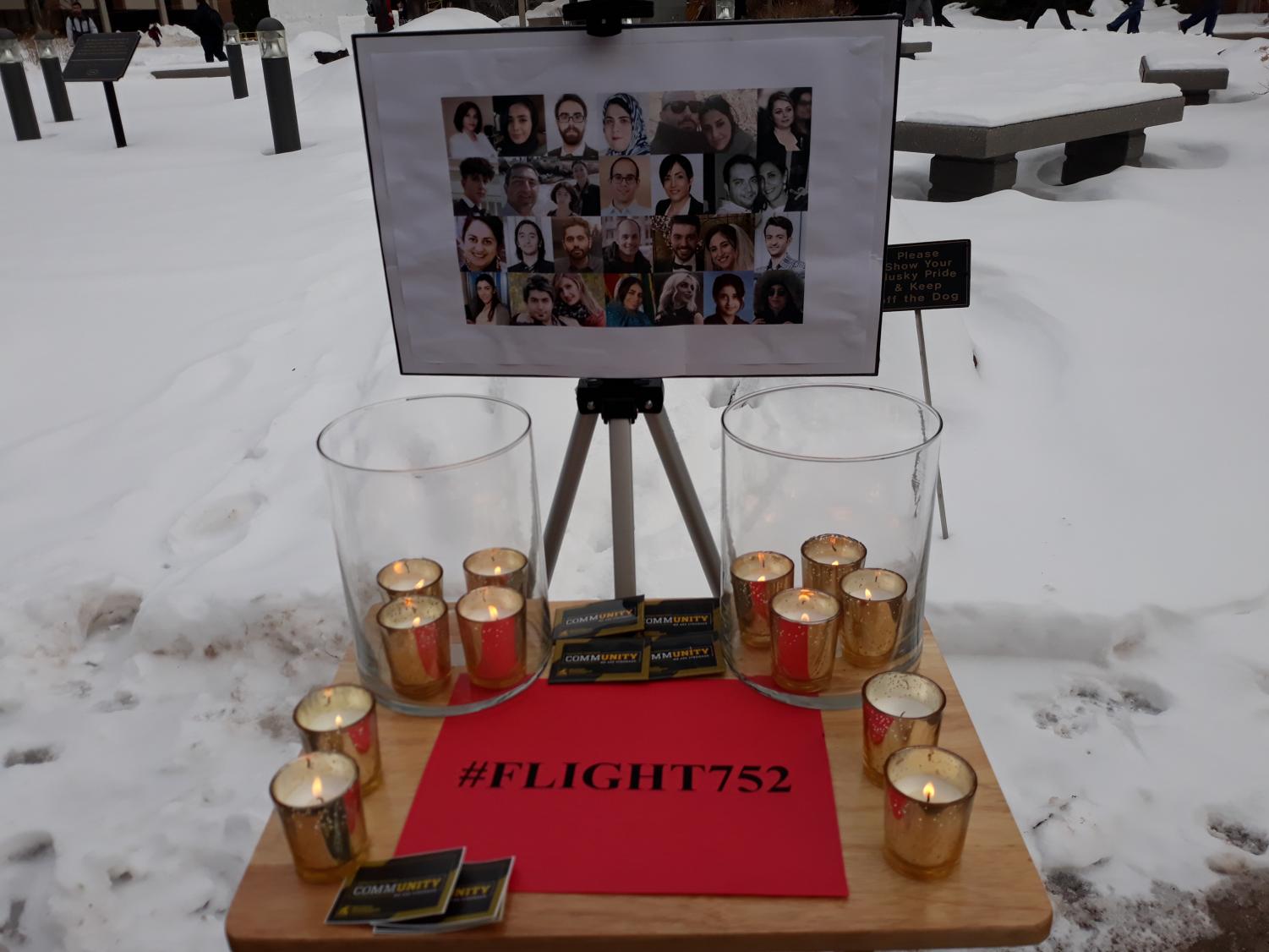2020 is a year that signals great changes in the lives of citizens worldwide. Unfortunately, many are distracted, if not traumatized and overloaded by oft politically charged stories of tragedy.
The January 8th, accidental downing of Flight 752 in Tehran, is a tragedy that has has heaved layers of conflict upon every individual in a war-weary world society.
Globally, in events such as vigils and moments of silence like the one here at MTU last Wednesday, people are taking time to pause and reflect, to understand what has occurred, and to know how to heal and deal with an uncertain future.
In the past couple of weeks, President Trump and some other world leaders have explicitly called into question the relevance and credibility of the United Nations. The Institute for Economics and Peace’s 2019 Global Terrorism Index report states that terrorist threats have been in decline worldwide.
NATO leaders have recently met amidst an expressed struggle to retain legitimacy. Middle Eastern and African countries have developed security arrangements that may unite the Israeli and the Arab world, Red Sea and Gulf of Aden countries. The 2019-2020 US National Defense Authorization Act was amended to include provisions for India and 4 other nations to join NATO.
In this shifting geopolitical landscape one often-overlooked cultural and ethnic group of people remain that lay at the center of the world, the Middle-East and regional conflicts. They are the largest stateless minority on earth- the Kurds.
The backstory of the Kurds is one of complexity and great length. They had been denied statehood after World War 1 and have been fighting for it ever since. They were essential allies to the US during the Iraq war, and have since vaulted their goal of statehood into a legitimate government.
In the aftermath of the January 8th assassination of Iranian Quds General Soleimani, Iran reportedly retaliated by shooting 22 missiles at two locations. One spot was 100 yards from the US Embassy in Baghdad’s Green Zone, and 2 other missiles reportedly struck Erbil International Airport. Responding to the new insecurity and the question of Iraqi sovereignty caused by the attacks, on January 11th, high level meetings between the two Iraqi regional governments took place. These resulted in a shared security agreement but also disagreement on the status of US forces in Iraq. Baghdad’s federal government who wants the US forces out has waned in power due to social upheaval which led to having only a caretaker Prime Minister. Meanwhile Erbil’s Kurdish Parliament has grown in strength and legitimacy.
The Middle East Monitor, on January 13th, reported that the Kurdish President said it is “not the time” for US forces to leave Iraq, citing the threat of Daesh to the region. On that same day, Bas News reported that he announced his forces were “ready to assist Iraq” in taking over for US troops in securing the region. At the same time he condemned the secretary general of Lebanese Hezbollah, Hassan Nasrallah, who made recent statements against the Kurdish Peshmerga.
Also on January 13th, China declared the opening of a new embassy in Erbil. In further evidence of the final legitimacy of the Kurdish government, President Barzani is attending the 50th World Economic Forum in Davos, Switzerland. This event is ongoing until January 24th and is bound to set the stage for the continued development of the economy of the Middle-East (ME) and of the world. Iran has cancelled their attendance.
In the background of these developments many security arrangements have been shaken up, resulting in new balances of power. On November 28th of last year, al Jazeera referred to French President Macron’s statement, of NATO being “Braindead”, as a “wakeup call.” On December 4th last year high level NATO meetings were conducted to discuss the next steps NATO would take to regain its legitimacy. President Trump later in December called for NATO + ME to equal ‘NATOME’.
Last year a similar pact was made called MESA (Middle East Security Alliance), between GCC countries, Egypt, Jordan, with Israel as an intelligence-sharing partner. MESA met last year, and has progressed into a functional working group. Israeli PM Netenyahu is currently campaigning on the promise of an Arab and Israeli security pact. On January 6th Sudan, Djibouti, Somalia, Jordan, Yemen, Eritria and Egypt signed the Charter of the Council of Arab and African Coastal States of the Red Sea and the Gulf of Aden.
There remains a looming question of who will take over for US troops if they leave Iraq. The Kurds could represent a vital force for this end, and the Kurdish President has announced they are ready to make such a commitment. In that, a resolution to Iraq’s pivotal conflict has presented itself. This new security arrangements could change the dynamics of power in the Middle-East and the entire world.
These arrangements have been a long time coming, and are driven at least in part by the emergence of new technologies creating insecurity, and also those creating greater security. Amidst this unforgettable moment of global stress, it is natural to seek clarity. Understanding the Kurdish situation is essential to grasping the situation in the Middle East as it relates to geopolitics.


